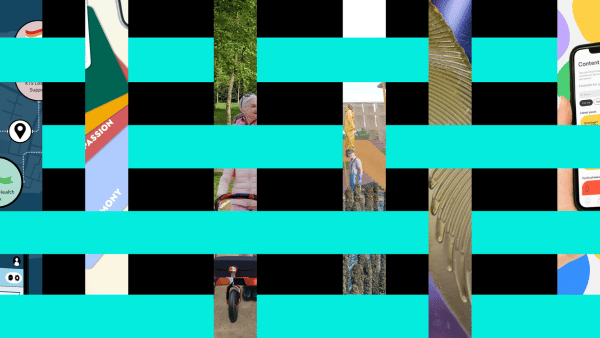Ayn Rand is not as iconic in the UK as in the US, but she is becoming more so thanks to the UK’s new Health Secretary, Sajid Javid. David Sloan Wilson FRSA explores the weaknesses and dangers of Rand’s brand of individualism and argues that it ignores the social nature of human beings.
An American writer and philosopher, Ayn Rand gave voice to individualism as a moral ideal in her philosophy, which she called Objectivism, and her two novels, The Fountainhead (1943) and Atlas Shrugged (1957). Individualism – and specifically neo liberalism – has been the dominant political ideology in both the US and the UK for decades, championed in particular by Reagan and Thatcher. It would be just as pervasive without Ayn Rand, but she had a way of casting a spell akin to religious fundamentalism. One of her disciples was Alan Greenspan, former Chairman of the US Federal Reserve Board, who was so bewitched that it took the 2008 economic crisis to snap him out of it.
By all accounts, Greenspan is a decent man who genuinely thought that he was benefitting his country and the world with his policies. His problem was not a lack of character or bad intentions but a faulty worldview. Unfortunately, when you are a true believer and things are not turning out well, instead of reviewing your position, you tend to think it is because you aren’t applying your cherished principles strongly enough. That is how Alan Greenspan behaved, right up to the bitter end.
So it is concerning to read that Ayn Rand is the philosophical hero of the UK Home Secretary, Sajid Javid, that he re-reads her work every year, and that his wife threatened to divorce him if he didn’t stop reading passages aloud to her. He might be the nicest and best intentioned of men, but if he is a true believer in Rand’s brand of individualism, nothing short of another catastrophe is likely to change his mind.
The alternative to individualism recognizes society as a kind of organism in its own right. The idea of being part of something larger than ourselves stretches back to antiquity in religious, spiritual and political thought, but it has acquired a new scientific foundation based on a combination of complex systems theory and evolutionary theory. Here are three take-home messages for Mr Javid and his fellow individualists. I will borrow from US President Bill Clinton’s famous mantra “It’s the economy, stupid”, not to insult anyone’s intelligence, but to emphasize the common-sensical nature of each message, once the spell of individualism is broken.
It’s about whole systems, stupid
The metaphor of the invisible hand, which pretends that the pursuit of lower-level self-interest robustly benefits the common good, is profoundly untrue except in the narrowest of contexts. Any systems engineer will tell you that a complex system cannot be optimized by separately optimizing its parts.
That also goes for our social and economic systems at all scales, from small groups, to major agencies such as the NHS, to nations and the planet. The bottom line: system-level adaptation requires system-level selection.
It’s about cooperation, stupid
Cooperation is the signature human adaptation. Throughout our evolutionary history, individuals never lived alone. They always lived in the context of highly cooperative groups, even when those groups were warring with other groups. Living in a cooperative social environment was such a constant of human evolution that our brains and bodies evolved to seamlessly integrate personal and social resources when making their myriad trade-off decisions. This means that when individuals are forced to rely only upon their personal resources, their brains and bodies interpret it as an emergency situation.
The bottom line is that small, appropriately structured groups engaged in meaningful work are a fundamental unit of human society and the ‘cells’ of ‘multicellular’ society at larger scales. This elementary insight is almost entirely obscured by individualism.
It’s about experimentation, stupid
No theory or worldview leads directly to the right answers. The world is too complex for that to be the case. This is why centralized planning almost never works, whether attempted by socialist nations, Health Secretaries invested with too much power, or ‘command and control’ corporate CEOs. Instead, we must use our theories and worldviews to make educated guesses and then test our expectations against models and real-world implementations, again and again and again.
Put another way, we must manage the process of cultural evolution: choosing targets of selection, orienting variation around the targets, and replicating better practices, realizing that they will be sensitive to context. The bottom line is that cultural evolution will take place whether we want it to or not. Unless we manage cultural evolution for the common good, it will result in problems rather than solutions.
These three take-home messages rest upon an authoritative scientific foundation, especially compared to the faux scientific edifice of neoclassical economic theory. For a professional audience, I make the case for paradigmatic change in a project funded by the ESRC’s Rebuilding Macroeconomics program titled Managed Evolution: A New Narrative for Macroeconomics. For a general audience, my book This View of Life: Completing the Darwinian Revolution shows how evolutionary science has gone beyond the study of genetic evolution to include all the fast-paced changes swirling around us and even within us. And if novels are your cup of tea, I have pursued Ayn Rand into the fictional realm with a sequel to her novel Atlas Shrugged titled Atlas Hugged: The Autobiography of John Galt III.
The NHS faces daunting problems at multiple levels. At the lowest level, we have the citizens who are supposed to be served by the NHS and the NHS staff who are supposed to serve them. Both are experiencing unprecedented levels of stress, not only from NHS-related problems but also the totality of their lives. The highest level is not the NHS or even the UK, but the entire planet as an inextricably interconnected system. Between these levels, we have layer upon layer of organizations and processes that must be appropriately structured to play their role in the whole system. The NHS is one such organization faced with challenges such as vaccinations, a backlog of care, use of data and technology, and rebuilding trust.
The single most effective step would be to begin at the lowest level, promoting the formation of small and appropriately structured groups whose members work together on objectives that are meaningful to them. These are the “cells” of multicellular society and creating them results in a double benefit: Group members thrive as individuals and the groups are more efficacious at participating in governance at larger scales than individuals can be on their own.
There is still room for top-down governance but it must take the form of creating architecture for managing cultural evolution at lower scales and participating in cultural evolution at higher scales. At every scale, it must be a matter of “done with”, not “done to”, to earn genuine trust and commitment. The private sector can play a vital role—and does in the national governance systems known to work best--but in a collaborative and transparent relationship with the state and citizenry and with the welfare of the whole nation in mind. And the rules that must govern the affairs of nations and multinational corporations within the global village are no different than for the individual members of actual villages. Status must be earned by reputation, not power.
In Atlas Hugged, a worldwide transformation takes place in 100 days. That’s just a story, but positive multilevel cultural change can be rapid when guided by the right theory. After all, the problem with human cultural evolution in the Internet Age is not its speed but its direction. With the right theory, cultural evolution can be as fast as it has already become but resulting in solutions rather than more problems.
The new paradigm treats our narratives as quite literally like our genes. Our genes allow for a certain degree of flexibility in how we respond to our environments, but more substantial change requires genetic change. The same is true for our narratives, whether conveyed through fiction or formal theorizing. The behavioral repertoire of individualism is not up to the task of adapting our societies to rapid environmental change. With a change of narrative, new ways forward, which were previously invisible, can become common sense.
David Sloan Wilson is professor emeritus of biology and anthropology at Binghamton University in New York and president of Prosocial World, whose mission is “to consciously evolve a world that works for all”. Atlas Hugged is so anti-Rand that it isn’t even being sold. Instead, it is gifted for whatever the reader wishes to gift in return, with all proceeds going to Prosocial World.
Related articles
-
Why the UK needs a House of Campaigns
Comment
Richard Ellis
Parliament is based on political parties, but most of us approach politics through the particular issues that we care about. We should open up Parliament by giving campaigning groups a bespoke presence in the heart of our democracy.
-
Student Design Awards 2024: meet the shortlist
News
Aoife O'Doherty
The RSA Student Design Awards 2023 shortlist has been announced. Across nine briefs, 70 students are working to bring positive social change to people, place and planet.
-
From the era of anxiety to an age of aspiration
Blog
Andy Haldane
Shifting to an age of aspiration requires an environment where risk is seen as an opportunity, the culture is one of optimism, and investment is everywhere. Andy Haldane, RSA CEO, suggests our Design for Life mission can turn the tide of opinion to achieve those objectives.




Join the discussion
Comments
Please login to post a comment or reply
Don't have an account? Click here to register.
Building complex systems requires devolved organisational responsibility within a framework aligned to a strategy that is based on a shared vision and mission. That's all very difficult to achieve in a small or medium sized organisation. An organisatin the size of the NHS presents a major challenge. Communicating the vision and maintaining alignment is very hard, but absolutely necessary. It's not the sort of thing that can come about by political means alone, it has to start at primary school. The paradigm we use as a model of our world is very deep seated. For instance, undoing decades of misinformation about how our economy works is hard when the language we use has been carefully manipulated to facilitate preferred ideas and concepts, and to make it hard to express heterodox ideas, or for them to appear naturally absurd.